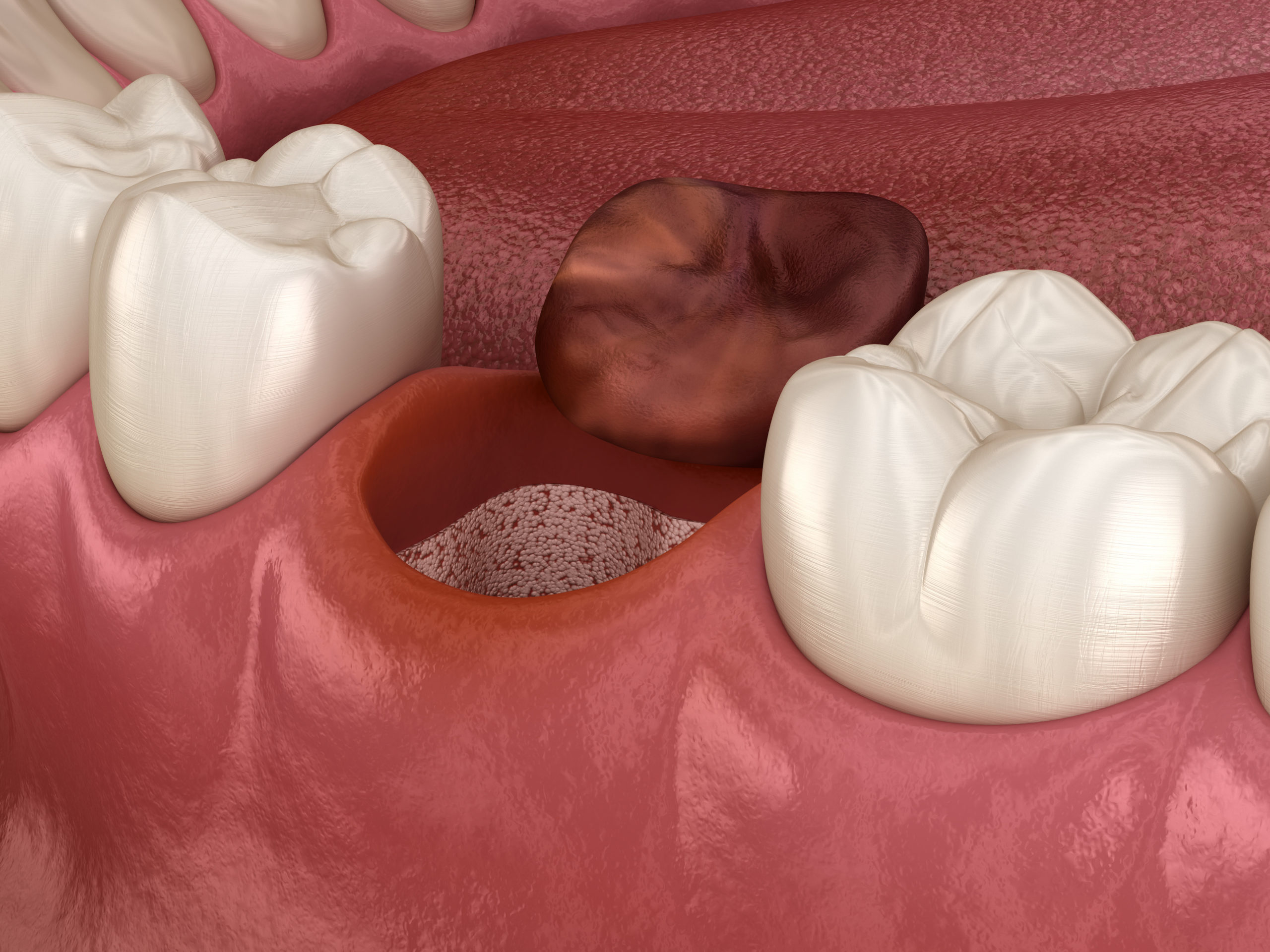
Whether you’ve already had a tooth extraction or you’re scheduled to get a tooth extraction in Orlando from Dr. Mark Ashy, you may be wondering how to speed up your recovery after treatment and avoid “dry socket.” In this blog from Elite Dentistry, we’ll discuss the importance of avoiding dry socket, as well as our top tips for avoiding it.
What Is Dry Socket And Why Do I Need To Avoid It?
When you have a tooth extracted, a blood clot will form in the socket where the tooth used to be. Basically, this acts as a “scaffold” to help your gum tissue and bone grow over the area. It also keeps bacteria and foreign objects out of your tooth socket.
Dry socket happens when this blood clot is damaged and dislodged, exposing the bone and unhealed tissue within your tooth’s socket. This can cause serious pain, slow down healing, and even cause further complications like an infection of the extraction site.
The good news is that dry socket occurs only in about 3.2% of extractions, and it’s easy to avoid. If you follow Dr. Ashy’s instructions to heal and recover after your extraction, you will not have to worry about this problem at all.
Our Tips For Avoiding Dry Socket After Tooth Extraction
As mentioned, you should consult with the instructions Dr. Ashy provides after your treatment. However, the most important things to do to prevent dry socket include the following:
- Don’t use straws for 2-3 days – Sucking on a straw or anything else within a few days of your extraction is a bad idea. This suction creates a lot of pressure in your mouth, and this can be enough to dislodge your blood clot, resulting in dry socket.
- Keep the area clean, but avoid brushing for a while – Dry socket can also happen if you start brushing your extraction site too early. You can brush your other teeth, but don’t brush the extraction site for about 3 days. During this time, you should use a saline rinse to keep the extraction site clean. You also need to avoid spitting vigorously. After rinsing, just let the liquid drip out of your mouth. Forceful spitting can dislodge your blood clot.
- Eat soft foods and chew on the other side of your mouth – One of the reasons you should eat soft foods while recovering is to avoid dislodging your blood clot. Sharp, tough, or crunchy foods could irritate and dislodge the clot. You will need to eat soft foods for at least a week. When you do start eating firmer foods, try to chew on the other side of your mouth, when possible.
- Don’t smoke for at least 5 days (and consider quitting) – Like using a straw or spitting forcefully, smoking puts pressure on your blood clot and could dislodge it. Tobacco smoke is also extremely harmful and impairs the healing process. You should avoid smoking for at least 5 days after your extraction.
In fact, you should consider quitting altogether. Even if you don’t get dry socket, tobacco use will slow down the healing process after tooth extraction, and it is one of the most harmful habits for both your oral health and your overall health.
Follow These Steps To Avoid Dry Socket After Tooth Extraction
As long as you take a few basic precautions, you won’t have to worry about dry socket after your tooth extraction. And if you think you may need a tooth extraction in Orlando, Dr. Ashy is here to help. At Elite Dentistry, we use the latest tools and techniques to provide pain-free extractions and ensure your mouth heals quickly. Contact us online or call us at (407) 658-0103 to schedule your appointment now.



Comments are closed.